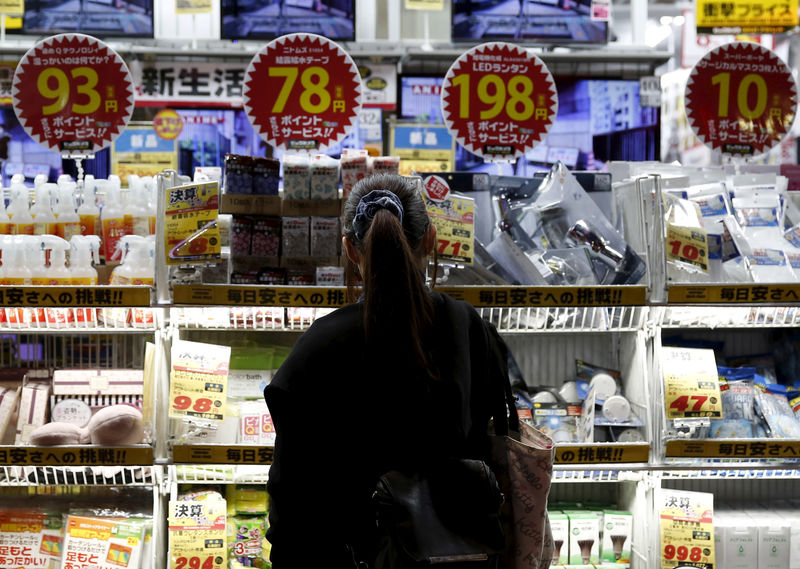By Leika Kihara
TOKYO (Reuters) - Japan's annual core consumer inflation accelerated slightly in January but remained distant from the central bank's 2 percent target, reinforcing market expectations the country is nowhere near an exit from ultra-loose monetary policy.
The price data underscores the fragile nature of Japan's economic recovery, as escalating Sino-U.S. trade frictions and slowing Chinese growth weigh on exports and business sentiment.
The nationwide core consumer price index (CPI), which includes oil products but excludes volatile fresh food costs, rose 0.8 percent in January from a year earlier, government data showed on Friday.
It matched a median market forecast and accelerated slightly from a 0.7 percent rise in December, the data showed.
An index the BOJ focuses on - the so-called core-core CPI that strips away the effect of both volatile food and energy costs - rose 0.4 percent in January, ticking up from the previous month's 0.3 percent gain.
The increase was driven by a rise in service inflation, which may be a sign firms are passing on rising wage costs, said Marcel Thieliant, senior Japan economist at Capital Economics.
"We expect the labor market to remain tight over the coming year so service inflation may strengthen a little further. Even so, falling energy prices mean that inflation will slow from 1.0 percent in 2018 to around 0.5 percent this year," he said.
The BOJ faces a dilemma. Years of heavy money printing have dried up market liquidity and hurt commercial banks' profits, stoking concerns over the rising risks of prolonged easing.
And yet, subdued inflation has left the BOJ well behind its U.S. and European counterparts in dialing back crisis-mode policies, and with a dearth of ammunition to battle an abrupt yen spike that could derail an export-driven economic recovery.
Some analysts say core consumer inflation may grind to a halt in coming months as recent oil price falls push down gas and electricity bills, which could put the Bank of Japan under pressure to ramp up an already massive stimulus program.
BOJ Governor Haruhiko Kuroda said on Tuesday the central bank was ready to expand monetary stimulus if sharp yen rises hurt Japan's economic recovery.
But he also said the BOJ will look not just at the benefits but the costs of additional easing, signaling that the hurdle for topping up stimulus would be high.

(Graphic: BOJ's battle with deflation - http://tmsnrt.rs/28KmQnX)